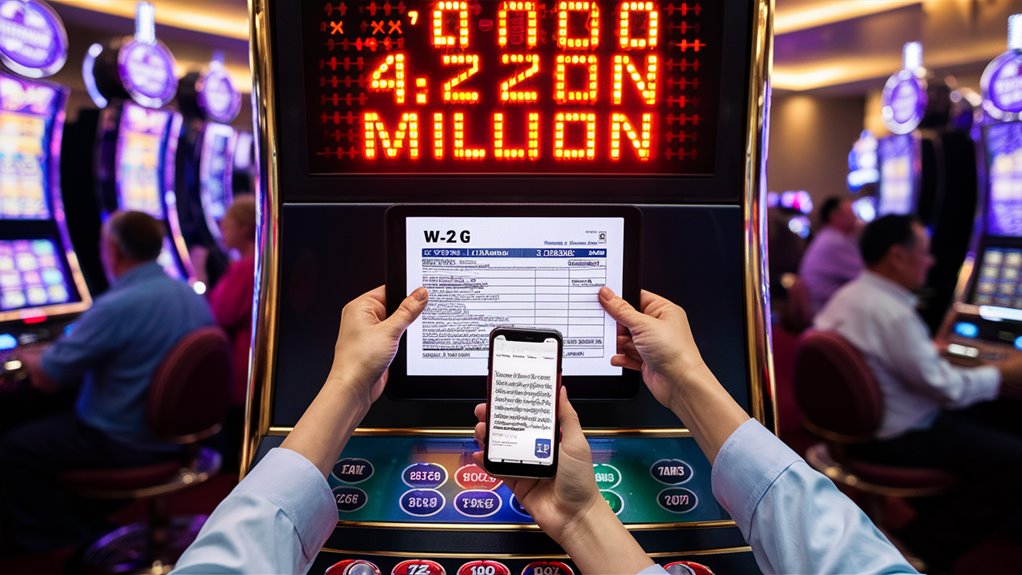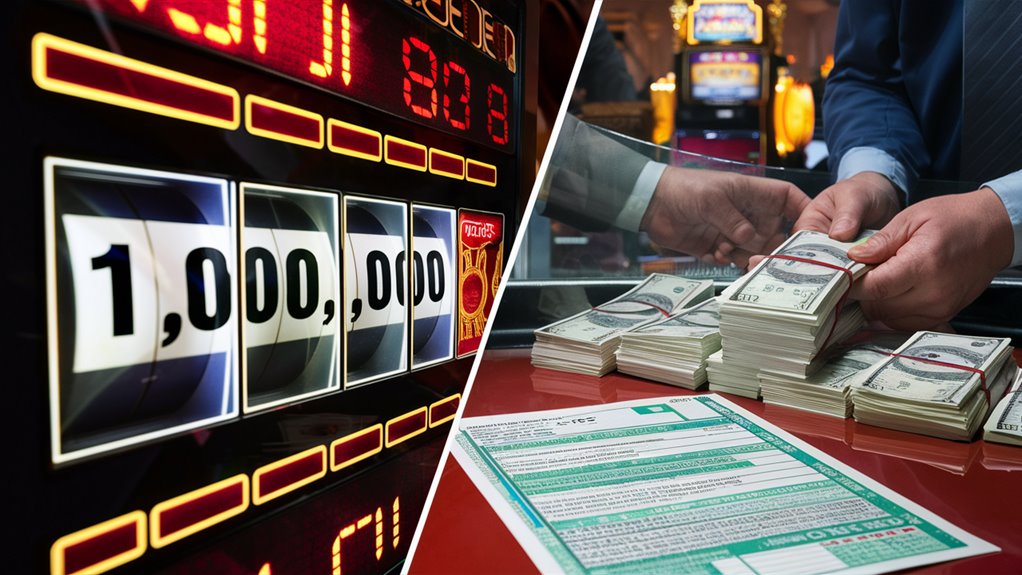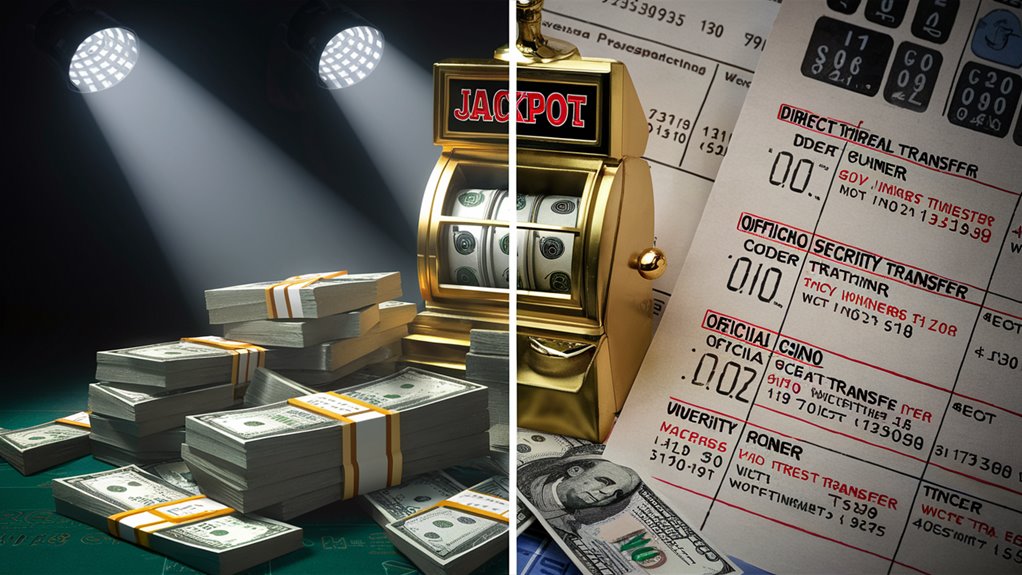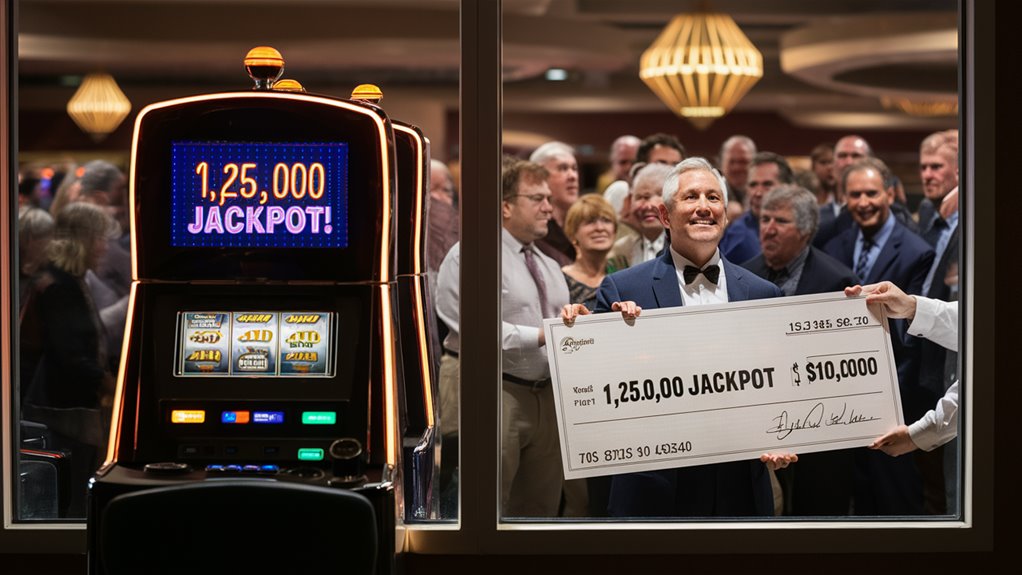Unmasking Fake News About Casino Jackpot Government Sharing
The Truth About Casino Jackpot Payouts
Casino jackpot payouts have become the subject of widespread misinformation, particularly regarding government involvement in prize distributions. This comprehensive analysis debunks the persistent myth that casinos split jackpot winnings with government agencies before paying winners.
How Casino Payouts Actually Work
Winners receive their full advertised jackpot amounts, with casinos following strict regulatory guidelines for tax withholding:
- 24% federal tax withholding on wins over $5,000
- Additional state-specific tax withholding where applicable
- W-2G form reporting for qualifying winnings
- Transaction verification for large payouts
Gaming Regulations and Oversight
Transparency Measures
- Certified random number generators (RNGs)
- Documented payment protocols
- Independent gaming commission oversight
- Regular compliance audits
Legal Requirements
Casino operators must maintain strict compliance with:
- Gaming authority regulations
- Anti-money laundering protocols
- Tax reporting requirements
- Player protection standards
Understanding Tax Obligations
The only government involvement in jackpot payouts relates to mandatory tax withholding:
- Required reporting thresholds
- Standard tax withholding rates
- Documentation requirements
- Compliance verification
This factual explanation serves to correct widespread misconceptions about casino jackpot distributions and government involvement in the payout process.
Origins of the Casino Payout Myth

Understanding Casino Payout Myths: History and Origins
The Birth of Electronic Gaming Misconceptions
The widespread belief about programmed casino payouts emerged in the early 1970s during a pivotal transition in gambling technology.
When electronic slot machines replaced mechanical models, this fundamental shift sparked lasting misconceptions about casino operations.
The change from visible mechanical reels to computer-controlled displays created a foundation of doubt that persists today.
Evolution of Payout Myths in the 1980s
The casino payout myth gained significant traction during the 1980s, intertwining with widespread misconceptions about government regulation.
A notable collection of forum discussions and media reports propagated false information about mandatory casino reporting before jackpot releases.
While casinos must report wins exceeding $10,000 for tax compliance, this documentation occurs post-payout, contrary to popular belief.
Technological Impacts on Public Perception
The implementation of Random Number Generators (RNGs) in the late 1970s dramatically influenced public understanding of slot machine operations.
The shift from mechanical to digital systems removed the transparency of visible components, leading players to develop alternative theories about payout mechanisms.
This technological advancement, while improving game fairness, inadvertently strengthened existing misconceptions about casino payout patterns and timing.
Key Factors Behind the Myth
- Introduction of electronic gaming systems
- Transition from mechanical to digital displays
- Implementation of RNG technology
- Reduced visibility of operating mechanisms
- Misunderstanding of regulatory requirements
#
How Casino Jackpot Payments Work

# How Casino Jackpot Payments Work
Verification and Documentation Process
Casino jackpot payments follow strictly regulated procedures that protect both players and gaming establishments.
Electronic monitoring systems and security protocols immediately verify winning combinations through sophisticated surveillance and tracking technology.
Tax Reporting Requirements
For jackpots exceeding $1,200, casinos must submit Form W-2G to the Internal Revenue Service.
Winners must provide valid identification and social security numbers for tax documentation purposes. The casino maintains strict confidentiality regarding winner information while fulfilling mandatory reporting obligations.
Payment Options and Processing
Immediate Payouts
Small jackpot winners receive cash or casino checks on the spot after proper verification.
Large Jackpot Arrangements
Major jackpot winners can choose between:
- Lump sum payments
- Structured installment plans
- Bank transfer arrangements
Security Measures
Financial institutions partner with casinos to facilitate secure transfers for substantial winnings. Professional security services ensure safe transport of large payouts. Gaming commissions maintain oversight of all jackpot payment procedures through comprehensive compliance guidelines and regular audits.
Regulated payment protocols protect both casino operations and winner interests through:
- Identity verification
- Payment documentation
- Secure funds transfer
- Regulatory compliance
- Winner confidentiality
#
Tax Regulations for Gambling Winnings

# Tax Regulations for Gambling Winnings
Federal Tax Requirements for Gambling Income
Gambling winnings constitute taxable income under federal law, requiring mandatory reporting of all gains to the Internal Revenue Service (IRS).
Casinos must issue Form W-2G for slot machine winnings exceeding $1,200 and poker tournament prizes over $5,000.
Withholding Requirements and Tax Rates
The IRS mandates 24% federal tax withholding on gambling winnings surpassing $5,000. However, the total tax obligation may increase based on individual tax brackets.
State gambling taxes vary dramatically across jurisdictions:
- Tax-free states like Nevada: 0%
- High-tax states like California: Up to 13%
- Other states: Various rates between these extremes
Record-Keeping Requirements and Deductions
Essential Documentation
Maintaining comprehensive records of gambling activities is crucial for tax compliance:
- Gambling diary with detailed activity logs
- Gaming receipts and tickets
- Bank statements showing casino transactions
- W-2G forms from gambling establishments
Deducting Gambling Losses
Tax deductions for gambling losses are permissible up to the total amount of reported winnings when itemizing deductions.
Proper documentation becomes essential during:
- Annual tax filing
- IRS audits
- State tax compliance verification
Casino Reporting Requirements

Casino Reporting Requirements and Compliance Guide
Mandatory Jackpot Reporting Thresholds
Federal regulations require casinos to report specific gambling wins through Form W-2G under these circumstances:
- Slot machine and bingo jackpots of $1,200 or more
- Poker tournament winnings of $5,000 or more
- Single wins of $600+ at odds of 300 to 1 or higher
Documentation Process for Major Wins
When players hit qualifying jackpots, casinos must complete a thorough documentation process including:
- Verification of government-issued photo identification
- Collection of Social Security number
- Documentation of specific gaming device or table
- Recording of precise time, date, and payout amount
Table Game Transaction Monitoring
Currency Transaction Reports (CTRs)
Casinos maintain strict oversight of table game transactions through:
- Mandatory reporting of transactions exceeding $10,000
- Detailed tracking of large buy-ins and cash-outs
- Documentation of player identification and transaction details
Suspicious Activity Reports (SARs)
Financial crime prevention measures include:
- Monitoring for potential money laundering activities
- Reporting of suspicious gambling patterns
- Documentation of unusual transaction sequences
- Mandatory filing of SARs for questionable activities
This comprehensive reporting system ensures regulatory compliance and maintains financial transparency within casino operations.
Debunking Popular Social Media Claims

Debunking Casino Jackpot Myths: The Truth Behind Viral Social Media Claims
Common Misconceptions About Casino Payouts
Social media platforms have become hotbeds for casino jackpot misinformation, with deceptive claims spreading rapidly across Facebook, Twitter, and TikTok.
Government Revenue Sharing Myth
The widespread belief that casinos split jackpot winnings 50-50 with government agencies is entirely false.
While winners must fulfill their tax obligations on gambling winnings, casinos don't divide jackpots with any governmental body. Winners are responsible for reporting their earnings and paying applicable taxes according to federal and state regulations.
Payment Options and Winner Rights
A persistent viral misconception suggests casinos can unilaterally impose installment payments on jackpot winners.
This claim contradicts established gaming regulations, which mandate that casinos must offer winners their choice between a lump sum payment or periodic installments for substantial jackpots.
Photography and Documentation Rules
The claim that taking photos of winning slot machines invalidates jackpot claims represents another social media falsehood.
While casinos maintain specific policies regarding photography on their premises, documenting a win doesn't void payment eligibility. Valid grounds for jackpot denial are limited to:
- Verified machine malfunctions
- Documented player misconduct
- Violations of gaming regulations
These conditions are strictly defined by state gaming control boards and regulatory authorities.
Real Government Casino Revenue Sources

How Governments Generate Casino Revenue: A Complete Guide
Primary Casino Tax Revenue Sources
Gaming taxes represent the largest source of government revenue from casino operations. States impose rates between 6.75% to 54% on gross gaming revenue, with significant variation by jurisdiction.
Nevada's 6.75% gaming tax stands in contrast to Pennsylvania's 54% rate on slot machine earnings, highlighting the diverse approaches across states.
Licensing and Regulatory Fees
Casino licensing fees constitute a crucial revenue stream for government entities. Properties must pay multi-million dollar annual fees to maintain operating permits and gaming licenses.
These substantial regulatory costs ensure ongoing compliance while generating consistent government income.
Additional Revenue Channels
Employment-Related Revenue
- Payroll taxes from casino workforce
- Social security contributions
- Federal employment taxes
Property and Sales Revenue
- Real estate taxes on casino properties
- Sales tax from restaurants and retail
- Hotel occupancy taxes
- Entertainment venue fees
Corporate Revenue Streams
- Corporate income tax from casino companies
- Business licensing fees
- Vendor permit revenues
Through these diversified channels, governments collect billions in annual revenue from casino operations without direct participation in gaming proceeds. This comprehensive taxation framework ensures stable public funding while maintaining regulatory oversight of the gaming industry.
Truth About Jackpot Distribution

The Truth About Casino Jackpot Distribution
Understanding Casino Payout Systems
Casino jackpot distribution operates under strict regulatory frameworks and precise mathematical models designed to ensure fair gaming outcomes.
The Random Number Generator (RNG) in each slot machine functions independently, generating completely random results without manipulation or external intervention.
Jackpot Payout Process
Winners receive their full advertised jackpot amount, subject only to standard tax withholdings applied post-win.
Casino payout percentages typically range from 85-98%, with regular audits by gaming authorities ensuring compliance. These certified percentages are programmed into each machine and can't be altered without regulatory approval.
Progressive Jackpot Mechanics
Progressive jackpots build through a systematic accumulation of player wagers, with each bet contributing a small percentage to the growing prize pool.
The jackpot distribution system operates on pure mathematical probability, with no predetermined winners or government involvement in prize allocation. Each gaming session maintains equal winning odds, independent of previous results or timing.
Regulatory Oversight and Transparency
Gaming commissions mandate comprehensive documentation of all jackpot payments, ensuring full transparency in the distribution process. This rigorous oversight includes:
- Regular machine audits
- Certified payout verification
- Detailed winner payment records
- Compliance with gaming regulations
These measures guarantee that every jackpot winner receives their legitimate prize according to established gaming laws and mathematical probability models.








